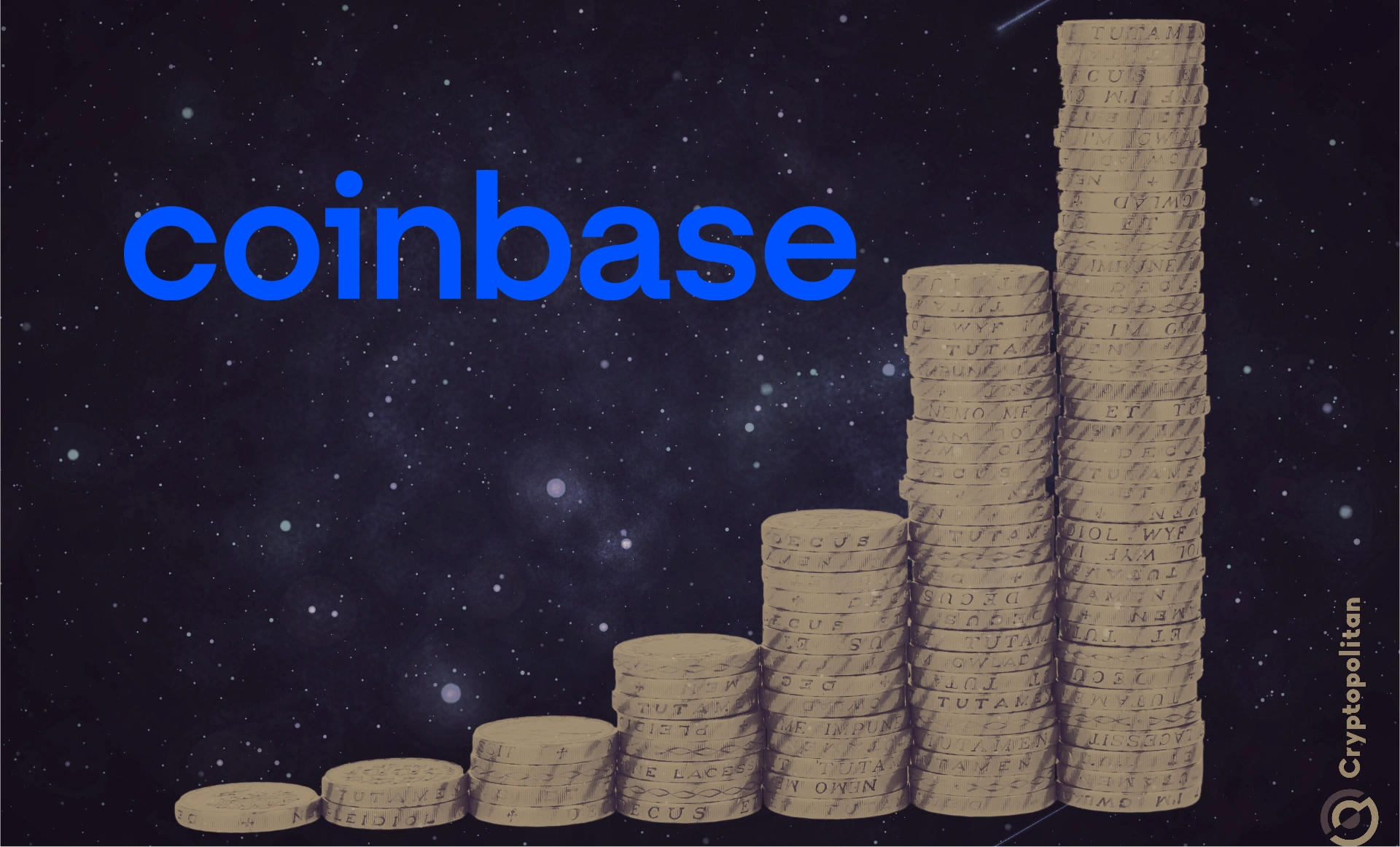Coinbase has evolved its revenue streams since 2021, as it has continued to outperform on its EPS metric in the past few quarters. The company’s main activities have also evolved with the crypto market trends.
Coinbase is now a more resilient company, noted DeFi analyst Michael Nadeau. The company tapped the interest of US-based traders, offering one of the most active fiat markets for Bitcoin (BTC). Stablecoins and staking turned into sources of significant revenue growth compared to 2021. The effects of the Base blockchain fees also started to affect the bottom line of Coinbase.
Coinbase is yet to recover its peak trading revenues from the bull market of 2021, but it has branched out to more crypto activities, especially tied to fees and rewards. Coinbase split its strategy, offering easy-access tools for meme coins and NFTs through Base. At the same time, Coinbase also grew its capacity for institutional finance through Coinbase Prime. The bull market of Q1-Q2 also boosted inflows to Coinbase Custody.
Over time, there are expectations Coinbase’s non-trading revenue from subscriptions and services can match or exceed its trading revenues. The shift to other major sources of revenues would help offset bear markets, which are the main cause of underperformance.
Coinbase has also grown the influence of the USDC stablecoin, taking revenues from swaps and transactions, especially on the Bitcoin (BTC) and Ethereum (ETH) markets. The overall market recovery led Coinbase to achieve $1.6B in revenues for Q1, essentially surpassing all of 2023 and compensating for the bear market underperformance.
Coinbase (COIN) traded at $196.02, up from $119.05 at the start of 2024. The stock price tracked the overall market recovery, combined with stronger interest in crypto assets from transparent sources.
Since going public in '21, @coinbase has successfully diversified its revenue lines.
And the market is rewarding them.
Case & point:
1. Revenue from transactions/trading made up 87% of Coinbase's revenue in Q2-21.
*In Q2-24 trading was 50% of top line revenue.*
2. Revenue… pic.twitter.com/rU0h4NYwE8
— Michael Nadeau (@JustDeauIt) August 14, 2024
Coinbase focuses on regulated trading
In an earlier quarterly filing, Coinbase pointed to unregulated markets as one of its main competitors and sources of risk. Compliance and regulations remain one of the main issues for crypto, and Coinbase aims to offer only approved assets.
In the coming months, Coinbase set up expectations of offering international derivative trading. So far, Coinbase has not given any updates on its plan to gain an EU-based MiFID license by acquiring a local company.
Coinbase still relies mostly on spot trading, with the biggest share coming from Bitcoin (BTC). The crypto derivative market is much larger and may add a new revenue boost. Currently, derivative trading on Coinbase is limited to a smaller selection of tokens and is not available to traders worldwide. Overall, Coinbase is available in 100 countries worldwide, but services may vary by location.
Coinbase Derivatives LLC has also continuously filed with the US CFTC to launch new derivative markets. The latest batch of tokens included Avalanche (AVAX) and Shiba Inu (SHIB), expanding the portfolio of approved derivatives.
As of August, Coinbase Derivatives offer 14 live products after adding Chainlink (LINK).
Coinbase aims to onboard new users with a gas fee subsidy
One of the growth elements of Coinbase is its native Base blockchain. The tokenless protocol, built through the Optimism superchain technology, has already onboarded close to 30M wallets. A total of $1.7B in value bridged from other protocols is giving Base users access to USDT, USDC, and other tokens.
Base grew to more than 670K daily active addresses on usual days, logging more than $50M in revenues. The protocol spans the less formal side of crypto, where Coinbase aims to build communities around NFT and meme token trading. Base also offers direct access to Uniswap trading, as well as the native Aerodrome exchange.
Beyond institutional support and official financial products, Coinbase continues to focus on the informal side of blockchain use. The platform opened a challenge for all smart wallet holders, offering $10 in monthly gas subsidies. Base continues to be a hub for low-cost NFT mints, though lacking the trading frenzy of Solana’s meme token market.
Coinbase smart wallet usage is also onboarding more retail customers for cross-chain operations. The smart wallet and on-chain tasks have turned more successful for Coinbase, compared to its previous approach of building a blue-chip NFT market, which saw only limited activity.
Cryptopolitan reporting by Hristina Vasileva





